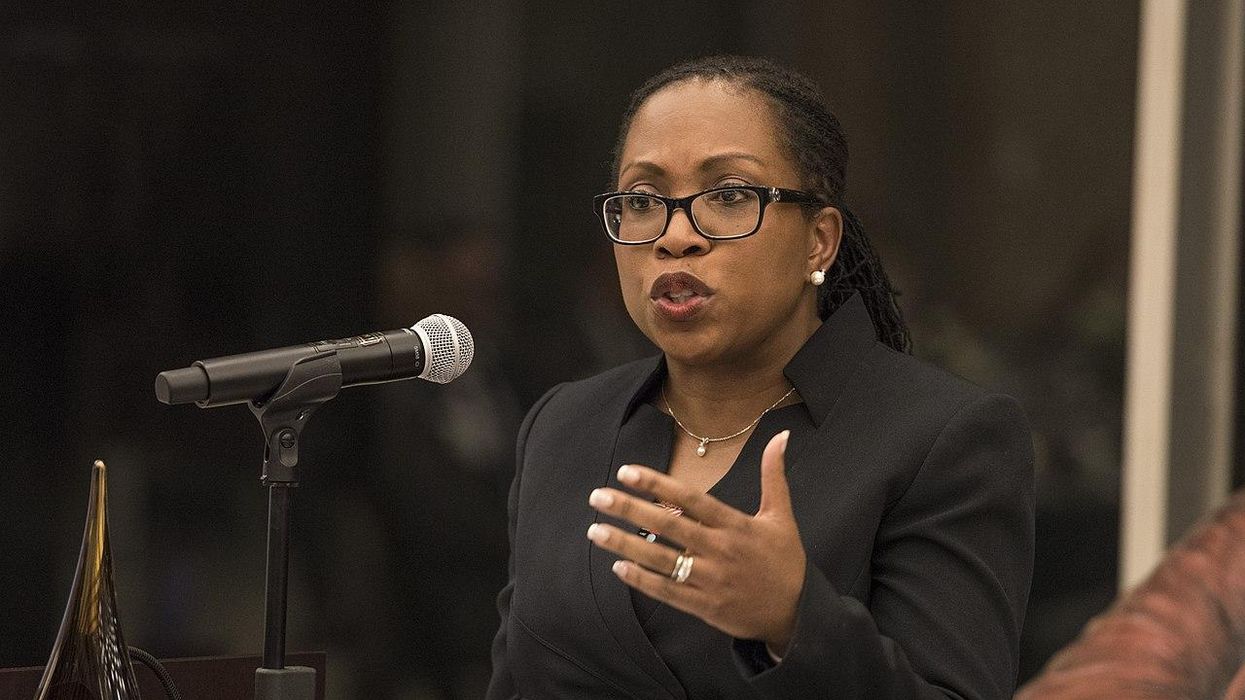'One of Biden’s deepest legacies': How federal judiciary appointments reflect America’s diversity


The phrase “elections have consequences” easily applies to the 2016 victory of former President Donald Trump, who appointed one-third of the right-wing justices who now sit on the U.S. Supreme Court: Brett Kavanaugh, Neil Gorsuch and Amy Coney Barrett. And that is in addition to all the lower federal court judges Trump confirmed with the help of Sen. Mitch McConnell of Kentucky.
That phrase also applies to Trump’s Democratic successor in the White House: President Joe Biden, who has so far appointed one High Court justice (Ketanji Brown Jackson) as well as an abundance of judges in the lower federal courts. And with Democrats having slightly expanded their effective majority in the U.S. Senate in the 2022 midterms, Biden will, in 2023, be in an even better position to get his federal judicial nominees confirmed.
Democrats lost the U.S. House of Representatives in the midterms, which will make life more difficult for Biden from a legislative standpoint. But in terms of federal nominees, Biden will, as of this Tuesday, January 3, have the advantage of a 51-seat Senate majority consisting of 48 actual Democrats and three independents who caucus with Democrats: Sen. Bernie Sanders of Vermont, Sen. Angus King of Maine and Sen. Kyrsten Sinema of Arizona.
READ MORE: Reform the Supreme Court with enduring Democratic control of Congress
In a report for National Public Radio (NPR) heard on “Morning Edition” and published in article form on NPR’s website on January 2, legal reporter Carrie Johnson stresses that not only has Biden gotten a lot of federal judges confirmed — he has also helped bring greater “diversity” to the federal judiciary.
“The Senate confirmed 97 federal judges during President Biden's first two years in office, setting records for the sheer numbers of jurists and their diversity,” Johnson reports. “In the end, federal courts may be one of Biden's deepest legacies, since judges often get the last word on what the law means and how it plays out in people's lives.”
According to White House Chief of Staff Ron Klain, the federal judiciary has been a “top priority” for Biden.
Klain told NPR, “When he talks about rights and liberties, he knows that in the end, those rights and liberties are decided by federal judges. So, the makeup of the federal judiciary is connected to everything else we do.”
READ MORE: 'Judicial supremacy': How the Supreme Court usurped the other two branches of government
White House attorney Paige Herwig described Biden’s presidency as a “sea change” in terms of the federal judiciary.
Herwig told NPR, “We've confirmed 74 women as federal judges during this administration so far. That's actually more than were confirmed during the four years of President Trump's term or during the eight years of President George W. Bush's administration."
Biden, according to Johnson, has so far “nominated and helped win confirmation for 11 Black women to sit on the Appeals Courts, more than all other presidents combined” — a fact that isn’t lost on Janai Nelson, president of the NAACP Legal Defense Fund.
Nelson told NPR, “Our federal judiciary will finally begin to reflect the diversity of this country and the diversity of experiences that Black women in particular can bring to the bench.”